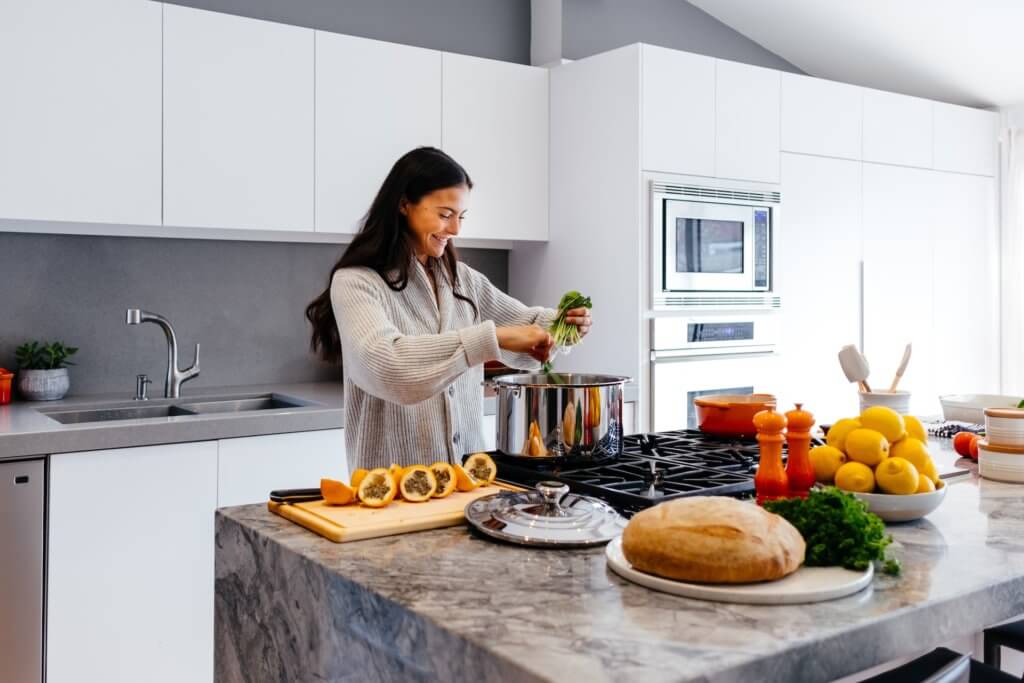You may not realize it, but you utilize essential creative skills when preparing food in the kitchen. In many ways, cooking as a hobby also enhances your innovative capabilities.
From coming up with different ingredient combinations to new creations with whatever resources you have on hand, a culinary experience – cooking – is an art form.
Here’s a closer look at the importance of an innovative mindset and how cooking boosts your creative tendencies.
Creativity at a Glance
Contrary to popular belief, we all have some degree of creativity – at least the ability to develop new ideas and contribute something valuable to the world. In a broader scope, creativity exists beyond a blank canvas or possessing some artistic skill like writing, painting, or making music.
In the workplace, creativity fosters innovation to generate solutions for world problems and help companies meet their bottom lines. It’s no wonder that creativity lands in fifth place among the top 15 skills with the highest growth demand by 2025, according to the World Economic Forum’s Future of Jobs Survey 2020.
In addition to work, creativity became a cornerstone of emotional and mental well-being amid COVID-19 lockdowns and uncertainties. In one study, researchers hypothesized whether creativity built up people’s strength and resilience to survive major crises.
The findings highlighted how creativeness improved mental health throughout the pandemic by encouraging emotional and verbal expression, offering a distraction, and helping generate positive feelings during the creative process.
When 31% of adults are susceptible to anxiety, creative experiences have never been more critical for coping. However, creativity may rear its head in many areas of our lives, such as hobbies like cooking.
3 Ways Cooking for Fun Sparks Creativity
Cooking benefits your mental health and well-being, much like creativity does. Cooking for fun carries several essential life lessons and has the potential to heighten your creative senses.
1. Learn From Failure
Following a recipe seems easy enough – the list of ingredients should be accurate for a perfect meal every time. Yet, it’s somehow still easy to miss a step or read the wrong amount of something along the way. The result is almost always a dish that’s too bland, salty, spicy, or sweet to consume.
For some people, failing at an activity produces panic and fear. They might even have atychiphobia – the intense fear of failure – which leads many to avoid situations in which they might fail altogether.
Cooking as a hobby can boost your problem-solving skills and help you learn from mistakes. The Cleveland Clinic suggests that exposure therapy is one of the best ways to overcome atychiphobia. It involves recreating situations you’ve failed at before in a safe environment to succeed at it the second time.
Maybe you need to balance the bitter flavor of rice wine vinegar with a teaspoon of sugar or add more broth to your bean soup if it’s becoming too thick. These situations are noteworthy for the next time you try the recipe.
Let there be a next time, as well. A study of new researchers who pursued grant funding for their projects and failed found that those who failed were 6.1% more likely to succeed at publishing their work than those already thriving in the field.
2. Encourages Experimentation
Any creative person will tell you that creativity is more than developing neat ideas – it’s a daily actionable trait.
It should then come as no surprise that cooking boosts creativity through experimentation. Creative tasks are measurable by personal growth and emotional well-being while participating in an activity.
Using ingredients in new ways, combining unique flavors, and straying from a recipe require creativity. On some level, it may lead to learning from failure – however, it could also mean experimenting to find a new way of preparing a dish or altering its taste and making it better.
An Australian study found that 63.2% of people had lower confidence and creativity levels while using convenience cooking products or strictly following a recipe than those who experimented and strayed from the steps in front of them. Allowing yourself to experiment when cooking can therefore boost your creativity.
3. Utilize Available Resources
Have you ever come home from a long day at work to only a few items in the refrigerator? You might wonder what you could possibly whip up from a few measly ingredients.
Utilizing available resources is another way cooking as a hobby can boost your creativity. Indeed, you’ll need to be innovative when you’re limited in what you can use to make a delicious homemade meal.
Maybe it’s two nights’ worth of leftovers that you’re looking to combine to avoid waste or perhaps you have a bunch of vegetables about to spoil, leaving you with no choice but to make a tasty stir fry.
Coming up with something on the fly requires you to tap into your creativity, especially when trying to use what you have around the kitchen.
Take Up Cooking to Boost Your Creativity
Creative people should consider applying their innovative problem-solving skills to cooking as a hobby. It’ll boost your innate creative tendencies and teach you essential lessons you can apply to everyday life.
Author Bio: Cora Gold is the Editor-in-Chief of women’s lifestyle magazine, Revivalist, where she writes about life, adventure, and wellness. Follow Cora on Facebook, Twitter, and LinkedIn.

